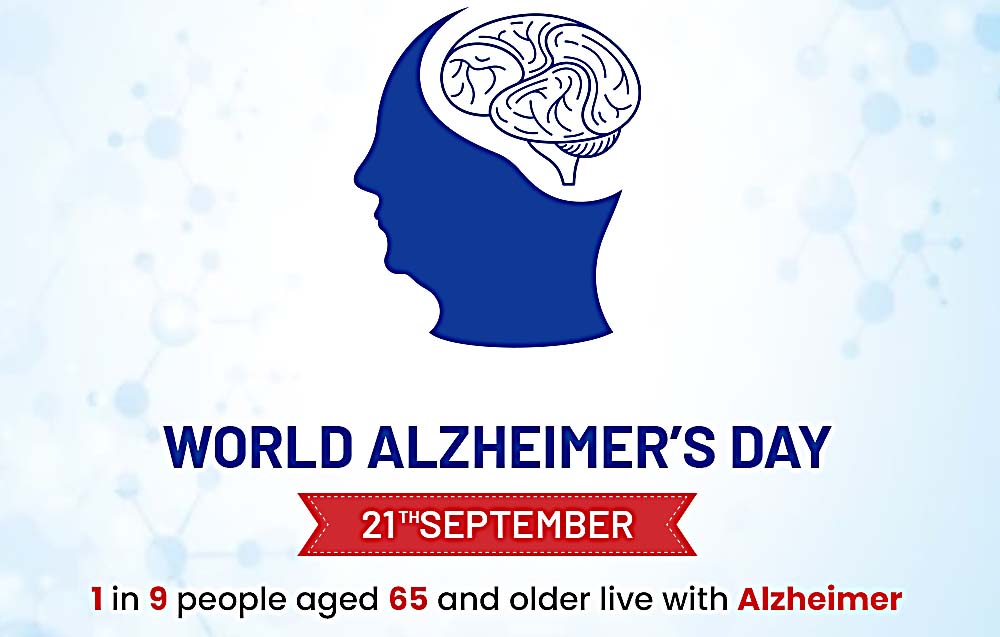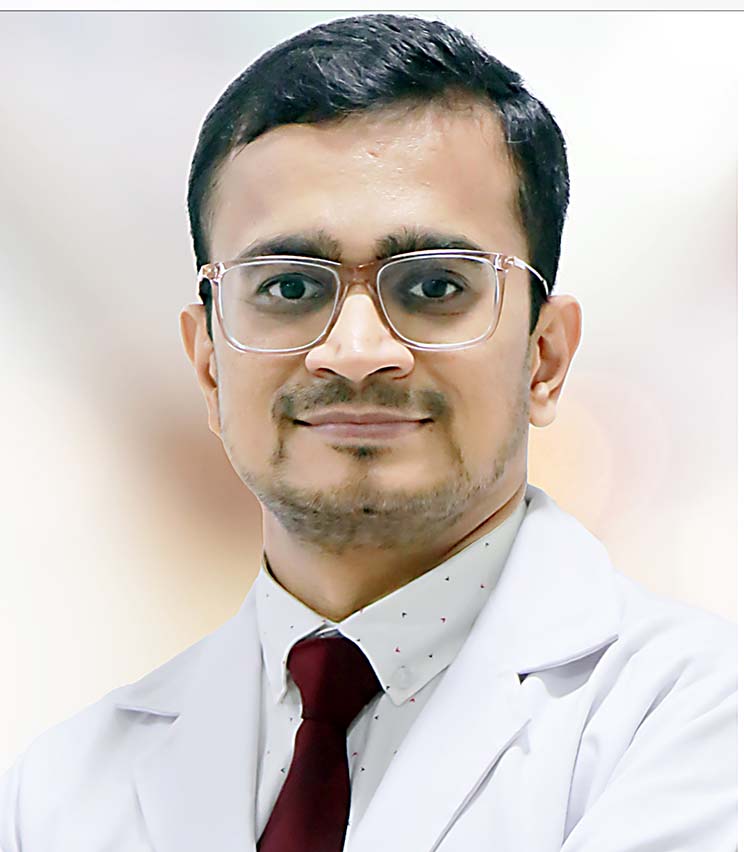World Alzheimer’s Day is all about Supporting Those Who Forget, But Are Never Forgotten

Marengo CIMS Hospital Ahmedabad commemorates World Alzheimer’s Day through advocacy for early diagnosis and appropriate treatment
- Fighting Alzheimer’s with Knowledge and Compassion towards Awareness Today for a Brighter Tomorrow
Ahmedabad: Marengo CIMS Hospital Ahmedabad commemorated World Alzheimer’s Day by advocating increased awareness to mark a significant step forward in the fight against stigma and create an open address of the disease. As the world prepares to commemorate World Alzheimer’s Day on 20th September 2024, the hospital joins the global community in raising awareness and support for individuals affected and families living with Alzheimer’s.
Alzheimer’s disease is a gradual brain disorder that progressively impairs memory and cognitive abilities. As the leading cause of dementia in older adults, it impacts millions of people globally. Although there is no cure, increasing awareness and adopting preventive strategies can have a meaningful impact. Alzheimer’s occurs when certain types of proteins build up in the brain, forming structures called ‘plaques’ and ‘tangles’. This leads to the loss of connections between nerve cells, and eventually to the death of these cells and loss of brain tissue.
The main symptoms of Alzheimer’s disease are memory loss that disrupts daily life, challenges in planning or solving problems, difficulty completing familiar tasks, confusion with time or place, problems with visual perception, new problems with words in speaking or writing, misplacing things and inability to retrace steps, decreased or poor judgment, withdrawal from work or social activities, and changes in mood and personality
While age and genetics play a role in Alzheimer’s risk, lifestyle factors can significantly impact brain health. Things that will help prevent Alzheimer’s are regular exercise and increased blood and oxygen flow to the brain; a diet rich in fruits, vegetables, whole grains, lean protein, and healthy fats (like the Mediterranean diet) may reduce risk; engage in cognitively stimulating activities like reading, puzzles, or learning new skills or languages.
 This is the most important thing that can help us stay away from Alzheimer’s disease. One needs to stay socially connected as social engagement in person (but not on social media) supports brain health and cognitive function. Other impacting factors are getting quality sleep aiming for 7-8 hours of good sleep each night; and managing stress as chronic stress can harm the brain, so practice stress-reduction techniques like meditation or yoga. A person with a genetic predisposition will also need to control cardiovascular risk factors by being mindful of blood pressure, cholesterol, and diabetes and keeping them in check; avoiding smoking and excessive alcohol use; regular visits to the doctor regularly to monitor the overall health and cognitive function.
This is the most important thing that can help us stay away from Alzheimer’s disease. One needs to stay socially connected as social engagement in person (but not on social media) supports brain health and cognitive function. Other impacting factors are getting quality sleep aiming for 7-8 hours of good sleep each night; and managing stress as chronic stress can harm the brain, so practice stress-reduction techniques like meditation or yoga. A person with a genetic predisposition will also need to control cardiovascular risk factors by being mindful of blood pressure, cholesterol, and diabetes and keeping them in check; avoiding smoking and excessive alcohol use; regular visits to the doctor regularly to monitor the overall health and cognitive function.
Currently, there is no surgical treatment that can cure or stop the progression of Alzheimer’s disease. However, some emerging surgical interventions and techniques focus on managing symptoms or improving quality of life for patients. Deep Brain Stimulation (DBS):
DBS involves implanting electrodes in specific areas of the brain to modulate neural activity. It is commonly used in Parkinson’s disease and is being explored as a potential treatment to improve memory and cognitive function in Alzheimer’s patients. Early studies show some promise, but it is still under investigation. Shunt Surgery for Normal Pressure Hydrocephalus (NPH):
In rare cases, some patients with Alzheimer’s may also have normal pressure hydrocephalus, a condition that causes fluid buildup in the brain. Shunt surgery can drain excess fluid and relieve pressure, which may help with symptoms like memory loss and confusion, though it doesn’t treat Alzheimer’s directly. Lastly, Vagus Nerve Stimulation (VNS):
This technique involves stimulating the vagus nerve through an implanted device. VNS is under investigation for improving cognitive function in Alzheimer’s patients by enhancing brain plasticity and memory. These surgical approaches are still experimental or limited in scope. The primary treatments for Alzheimer’s today are non-surgical, focusing on medication, lifestyle changes, and supportive care. However, ongoing research in surgical techniques aims to better understand and manage the disease.
The Theme for World Alzheimer’s Day 2024 is “Know Dementia, Know Alzheimer’s.” Considering the ‘human longevity revolution’ and the ‘human ageing time bomb’; the dementia crisis has been designated as “the epidemic of our century”. It is estimated that more than 57 million people have dementia worldwide. The impact of Alzheimer’s on patients and their families is profound. Therefore, timely action, diagnosis, and care can make a meaningful difference in the quality of life for those living with Alzheimer’s. As we mark World Alzheimer’s Day 2024, the call to action is clear: It’s time to act on dementia and time to act on Alzheimer’s.
According to a recent report by the World Health Organization (WHO), Alzheimer’s has emerged as one of the most pressing public health challenges of our time. Every five seconds, a new case of Alzheimer’s is reported globally. Currently, over 40 million people worldwide suffer from Alzheimer’s disease, with around 60% of these cases occurring in individuals above 65 years of age. Experts predict that this number could rise sharply to 80 million within the next decade.




